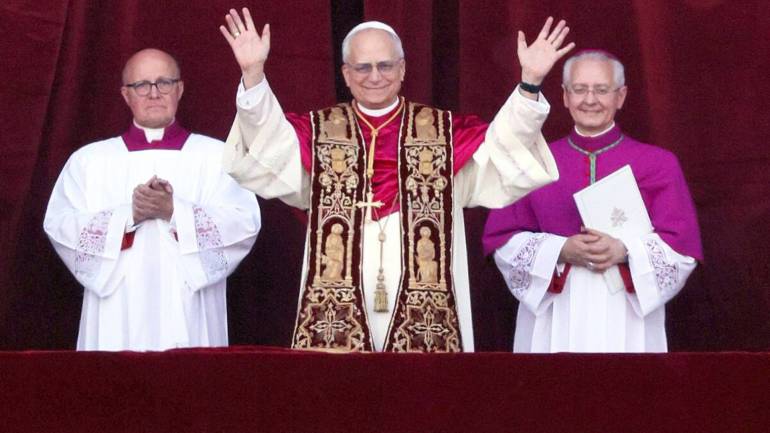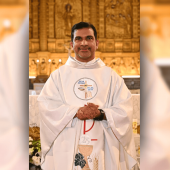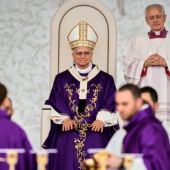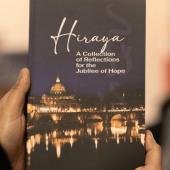Pope Leo XIV: A Gentle Reformer for a Synodal and Peace-Seeking Church

The election of Pope Leo XIV ushers in a hopeful new season for the global Church—especially for the faithful in Asia and across the developing world.
With roots in Latin America and a formation shaped by both theology and canon law, this new Successor of Peter brings with him a pastoral tone that is deeply spiritual and authentically missionary.
In his very first words as Bishop of Rome, Leo XIV spoke not from the lofty heights of authority, but from the heart of a shepherd. Reflecting on early impressions from church leaders and ecumenical communities, it is already evident: this is a pope who reforms gently, speaks firmly, and embraces humbly.
A Pastor-Theologian with Augustinian Roots
Metropolitan Borys Gudziak describes Pope Leo XIV as both “a pastor and a theologian.” This dual identity mirrors the legacy of Saint Augustine of Hippo (354-430), whose writings continue to shape Christian spirituality. Augustine famously wrote, “Our hearts are restless until they rest in You, O Lord”—a theme Pope Leo XIV may live out in his ministry.
This pope’s Augustinian spirituality suggests a focus on spiritual renewal from within. His leadership is likely to prioritize catechesis, doctrinal clarity, and personal conversion, guiding the Church not by force, but by invitation to deeper communion with Christ.
Continuity with Pope Francis: Dialogue and Ecclesial Clarity
“Let us build bridges—with dialogue, with encounter,” Pope Leo XIV declared, echoing Pope Francis' hallmark message. However, Leo XIV adds his own unique touch: as a canon lawyer, he brings a unique capacity to organize, clarify, and give juridical structure to the evolving model of synodal governance.
In Asia, where dialogue across cultures and religions is a lived reality, Pope Leo’s vision is especially relevant. His leadership may bring new pastoral structures, clearer ecclesial norms, and stronger foundations for a Church that listens and walks together.
The section titled "Social Doctrine and the Cry of the Poor" highlights important themes in Catholic teaching.
By choosing the name Leo, this pope signals a direct line to Leo XIII, father of modern Catholic Social Teaching, and Leo the Great, champion of Christological orthodoxy. That’s no small symbolic gesture.
Expect Leo XIV to speak prophetically about economic injustice, migrant struggles, and the dignity of labor—issues that resonate deeply in Asia’s growing urban centers and among the rural poor. He will likely champion a faith that acts, offering Gospel-rooted solutions to today’s social and economic challenges.
Ecumenical and Interreligious Bridge-Building
Christian leaders from Orthodox, Anglican, Lutheran, and Evangelical communities have welcomed the election of Pope Leo XIV with remarkable warmth. He has already been praised for his desire for “visible unity without fear.”
Given Asia’s religious diversity, this bridge-building spirit is a powerful gift. The pope’s openness to dialogue with Muslims, Hindus, Buddhists, and indigenous faiths aligns with Asia’s pluralistic fabric and the Church’s mission of peaceful coexistence.
A Missionary and Synodal Church
With pastoral experience in Chiclayo, Peru, Pope Leo XIV has walked closely with the poor. His words about a “Church that walks” reflect a personal and pastoral commitment to synodality as a spiritual path, not just a structure.
In Asia—where lay movements, Basic Ecclesial Communities, and youth groups are thriving—his missionary vision will find fertile ground. He invites us all to walk together, listening to the Spirit and each other.
Peace-Building and Marian Devotion
Standing in St. Peter’s Basilica, Pope Leo XIV proclaimed a call for “disarming peace”—humble, persistent, and rooted in God’s love. He concluded his first address with a prayer to Our Lady of Pompei, revealing a deeply Marian heart that seeks unity through prayer and motherly compassion.
This is a pope who will not only speak for peace but also pray and work for it, making his pontificate deeply relevant to conflict zones across Asia, from Myanmar to the Holy Land.
A Pope for Our Times—and for Asia
Pope Leo XIV combines the best of what the Church needs today: wisdom rooted in tradition, courage to walk new paths, and compassion that listens before leading.
As his ministry unfolds, he is poised to:
-
Renew the Church’s theological and catechetical formation
-
Build ecumenical and interfaith bridges, particularly relevant in Asia
-
Clarify and stabilize synodal practices with pastoral structure
-
Advance Catholic Social Teaching in ways that uplift the poor and marginalized
-
Foster a missionary Church of peace, justice, and hope for the world
His voice may be calm, but it will be convincing. His gestures may be gentle, but they carry the strength of the Gospel. For Asia and beyond, Pope Leo XIV is the right shepherd at the right time.
Radio Veritas Asia (RVA), a media platform of the Catholic Church, aims to share Christ. RVA started in 1969 as a continental Catholic radio station to serve Asian countries in their respective local language, thus earning the tag “the Voice of Asian Christianity.” Responding to the emerging context, RVA embraced media platforms to connect with the global Asian audience via its 21 language websites and various social media platforms.












